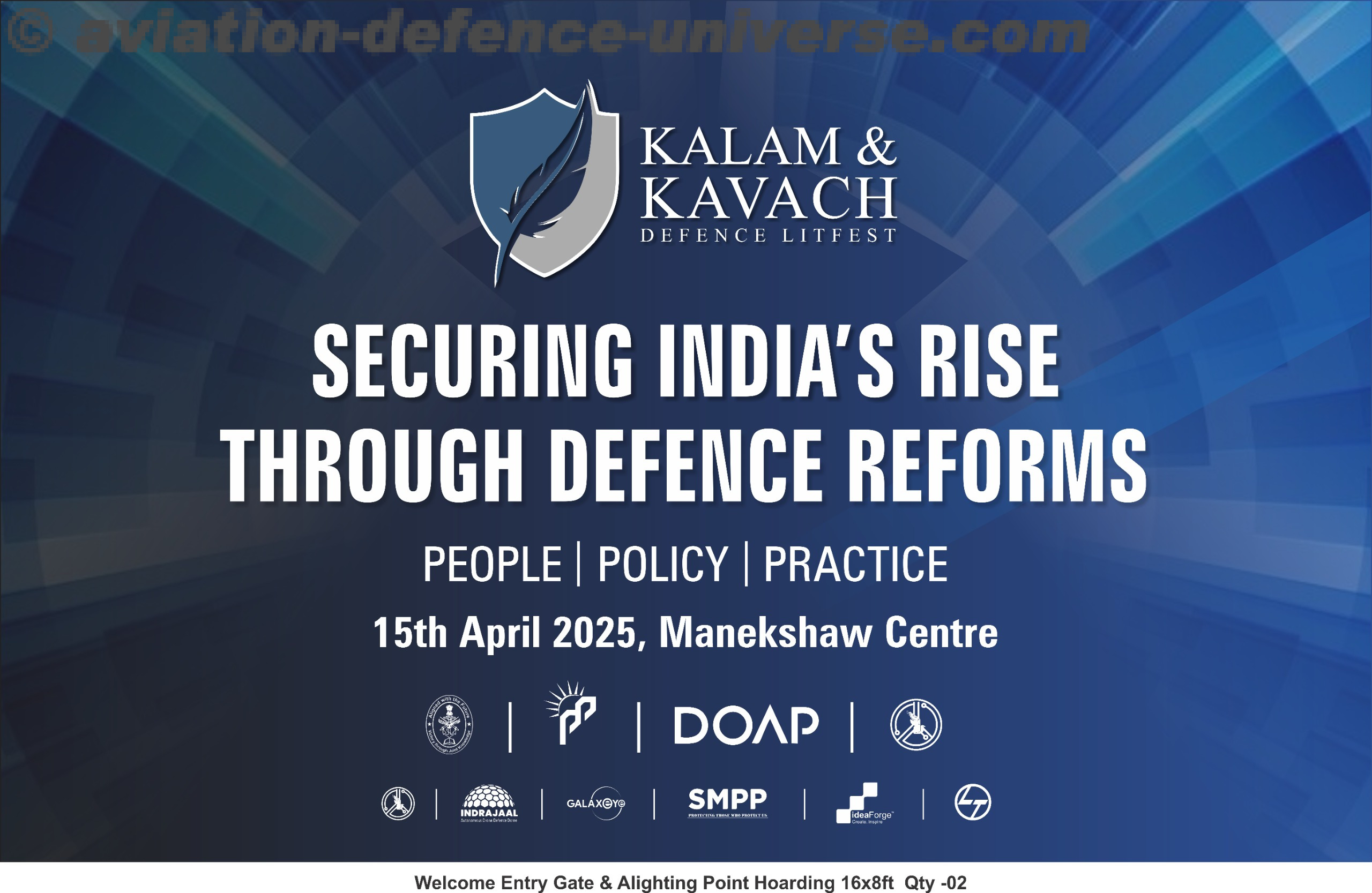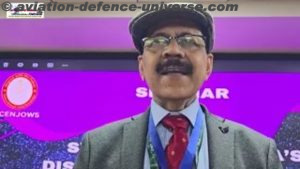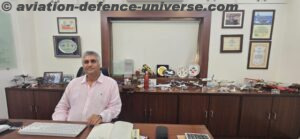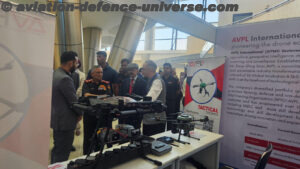- Pentagon Press MD Rajan Arya discusses how defence literature contributes to strategy, reform, and innovation in India’s armed forces.
By Sangeeta Saxena
New Delhi. 14 April 2025. As India gears up to observe 2025 as the ‘Year of Reforms’ in the Ministry of Defence, the focus is firmly on transforming the Armed Forces into a future-ready, tech-enabled, and multidomain integrated force. In sync with this vision, Pentagon Press—a leading publishing house in defence and strategic affairs—is organising a Military Literature Festival centred on the theme of defence modernisation and reforms. In this exclusive interview, Rajan Arya, MD of Pentagon Press, shares insights on the festival’s objectives, the critical role of military literature in driving strategic thinking, and how books authored by serving and retired defence personnel are shaping the narrative of India’s military transformation.
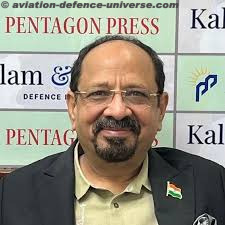 ADU. The Ministry of Defence has declared 2025 as the ‘Year of Reforms’. What inspired you to align the upcoming Military Literature Festival with this theme?
ADU. The Ministry of Defence has declared 2025 as the ‘Year of Reforms’. What inspired you to align the upcoming Military Literature Festival with this theme?
Rajan Arya. This declaration by Defence Minister Rajnath Singh is a landmark moment for India’s defence ecosystem. At Pentagon Press, we believe literature plays a crucial role in shaping thought leadership and policy discourse. The Military Literature Festival offers a timely platform to bring together voices—serving officers, veterans, strategists, and scholars—to contribute to the national conversation on modernisation and reform.
ADU. How do books authored by veterans and serving officers contribute to the national dialogue on defence reforms and strategic transformation?
Rajan Arya. These books are more than just memoirs—they are rich repositories of institutional memory, operational insight, and strategic foresight. Veterans provide retrospective wisdom while serving officers bring current operational and technological perspectives. Together, they help policymakers, researchers, and even civilians better understand the complexities of reform and modernisation in real-world scenarios.
ADU. Will your festival explore emerging domains like cyber warfare, space, AI, and robotics, which are mentioned as key reform areas by the Ministry of Defence?
Rajan Arya. Absolutely. These new-age domains are central to the future of warfare. Our panels will feature thought leaders and practitioners who are working at the intersection of defence and technology. From AI-based battlefield solutions to the militarisation of space, cyber security and quantum encryption, we aim to dissect how India can lead or adapt to these shifts.
ADU. Jointness, integration, and the creation of Theatre Commands are major reform priorities. Will these subjects be discussed at the festival?
Rajan Arya. Yes, in depth. We have curated specific sessions on jointness and integrated commands featuring senior tri-service officers and strategists who have led joint operations or contributed to structural planning. These discussions are vital to understand how interoperability and unified command structures can enhance operational effectiveness.
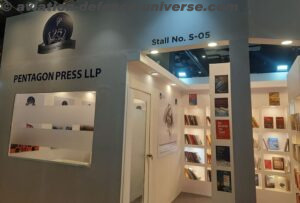 ADU. How does Pentagon Press curate its publishing programme to support the ongoing narrative of reform and transformation in India’s armed forces?
ADU. How does Pentagon Press curate its publishing programme to support the ongoing narrative of reform and transformation in India’s armed forces?
Rajan Arya. Our focus has always been to publish books that are timely, insightful, and policy-relevant. In recent years, we’ve published titles on India’s space and cyber strategies, military doctrine evolution, procurement challenges, and defence diplomacy. We actively collaborate with serving officers, veterans, think tanks, and academia to ensure our publications resonate with both practitioners and policymakers.
ADU. Acquisition reforms and indigenisation are critical topics today. Are there books or discussions in the festival addressing these areas?
Rajan Arya. Certainly. We have multiple sessions focusing on procurement reforms, Make-in-India for defence, and the challenges of balancing speed with transparency in acquisitions. Some of our recent books explore Atmanirbharta in defence manufacturing and the strategic role of the private sector and start-ups. These discussions are especially relevant as India aims to become a credible defence exporter.
ADU. How important is it to integrate civil-military cooperation into the reform process, and is literature an effective bridge?
Rajan Arya. Literature can be a powerful tool for demystifying the military for civilian audiences and bridging the civil-military divide. Reforms require not just operational changes but also mindset shifts across institutions. Books and debates help foster this understanding by making complex topics accessible and promoting dialogue beyond military circles.
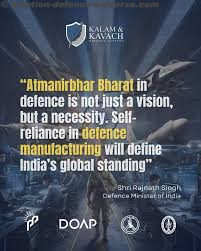 ADU. What role do you see for literature in capturing the evolving multidomain role of the Indian armed forces?
ADU. What role do you see for literature in capturing the evolving multidomain role of the Indian armed forces?
Rajan Arya. The Indian military is no longer confined to traditional land, air, and sea domains. It’s engaging in space, cyber, and information warfare. Literature provides the scope to capture these multidimensional transitions—operationally, doctrinally, and ethically. It also documents lessons learned and proposes new strategic frameworks.
ADU. Defence budgeting is always a hot topic. Will the festival touch upon the fiscal dimensions of modernisation and reforms?
Rajan Arya. Yes, we believe sustainable reform must be underpinned by prudent budgeting. We’ve scheduled discussions on defence allocations, capital versus revenue expenditure, and the challenge of funding next-gen tech without compromising operational readiness. Leading defence economists and analysts will provide insights.
ADU. Finally, what is your vision for this Military Literature Festival in the broader context of India’s journey towards becoming a global military power?
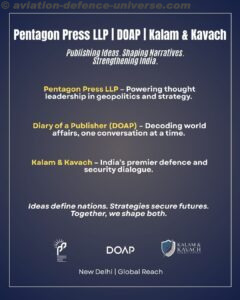 Rajan Arya. Our vision is to make the Military Literature Festival not just a celebration of military thought, but a catalyst for intellectual engagement, reform momentum, and global benchmarking. As India rises on the world stage, we must pair kinetic power with intellectual power. Books and dialogue can powerfully shape how we imagine and prepare for the future of our national security.
Rajan Arya. Our vision is to make the Military Literature Festival not just a celebration of military thought, but a catalyst for intellectual engagement, reform momentum, and global benchmarking. As India rises on the world stage, we must pair kinetic power with intellectual power. Books and dialogue can powerfully shape how we imagine and prepare for the future of our national security.
As India stands at the cusp of a strategic transformation in its defence architecture, the importance of thought leadership, public discourse, and literary engagement cannot be ignored. Rajan Arya’s vision for the Military Literature Festival reflects a deep understanding of the interplay between policy, operations, and knowledge creation. By providing a platform for veterans, scholars, technologists, and defence professionals to share their insights, Pentagon Press is not only amplifying the voice of India’s armed forces but also fostering an informed ecosystem that supports and accelerates the reforms envisioned by the Ministry of Defence. The pen, as Rajan Arya highlights, can indeed be a powerful ally to the shield in building a secure and self-reliant India.
As told to Sangeeta Saxena






































